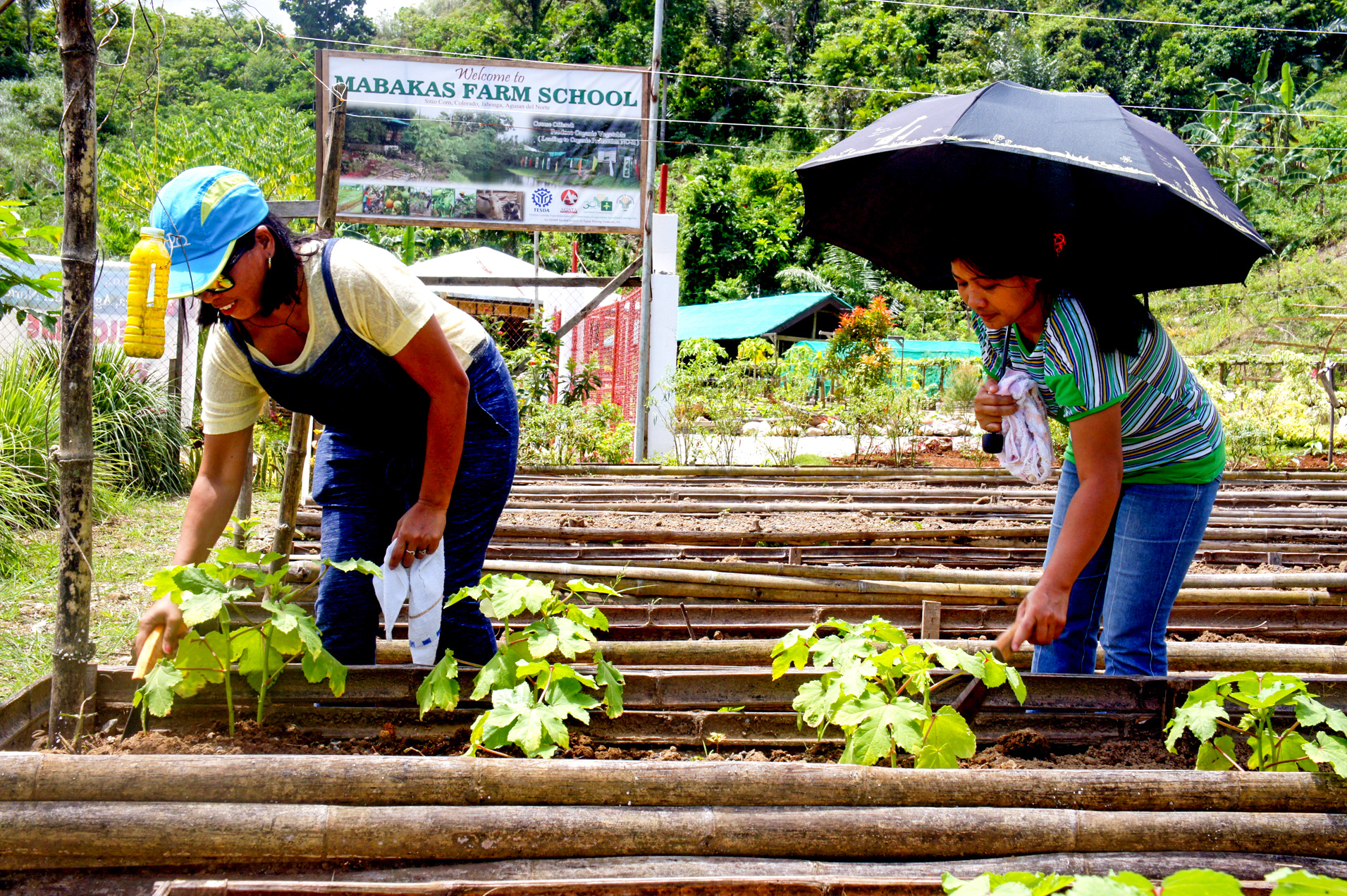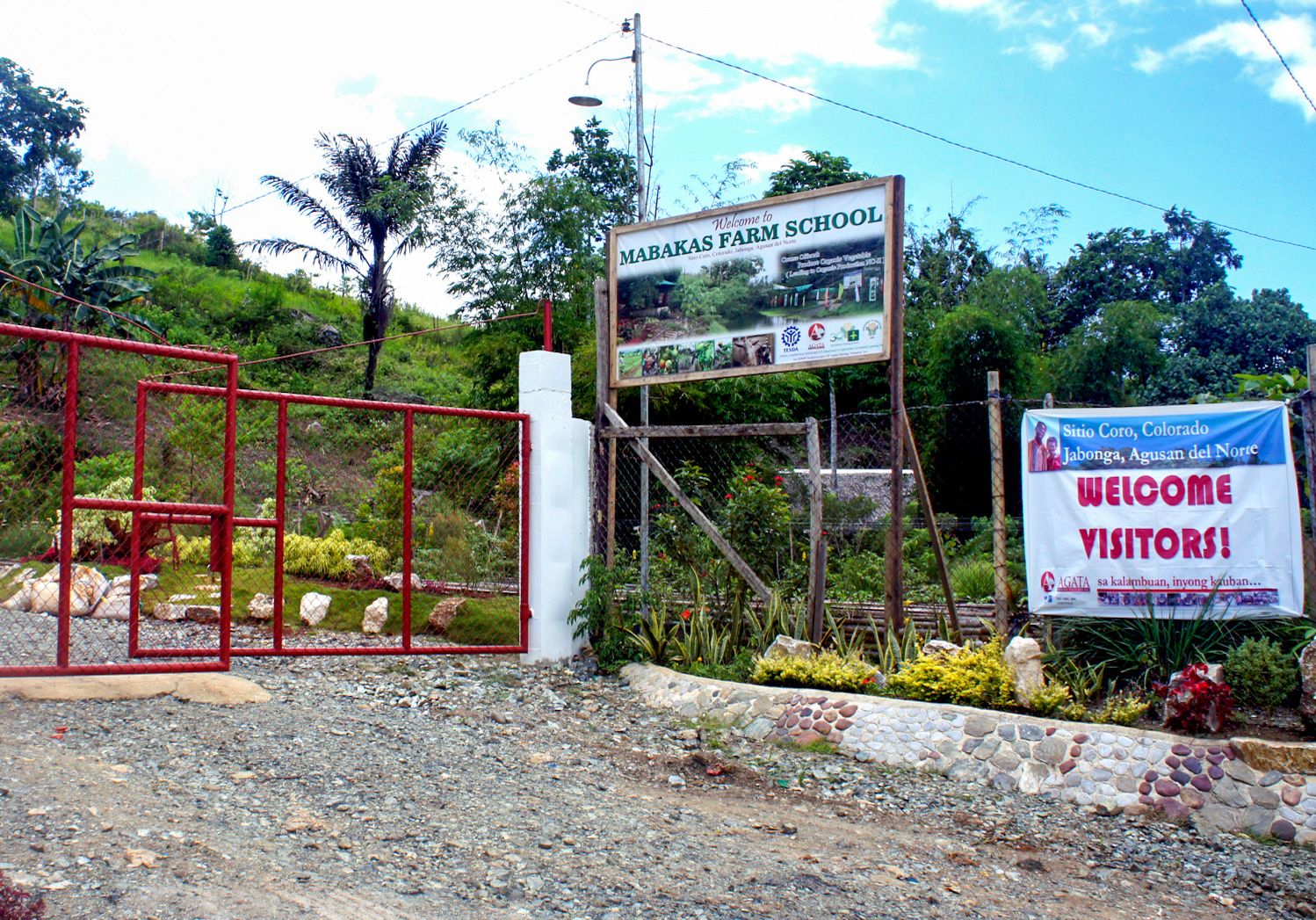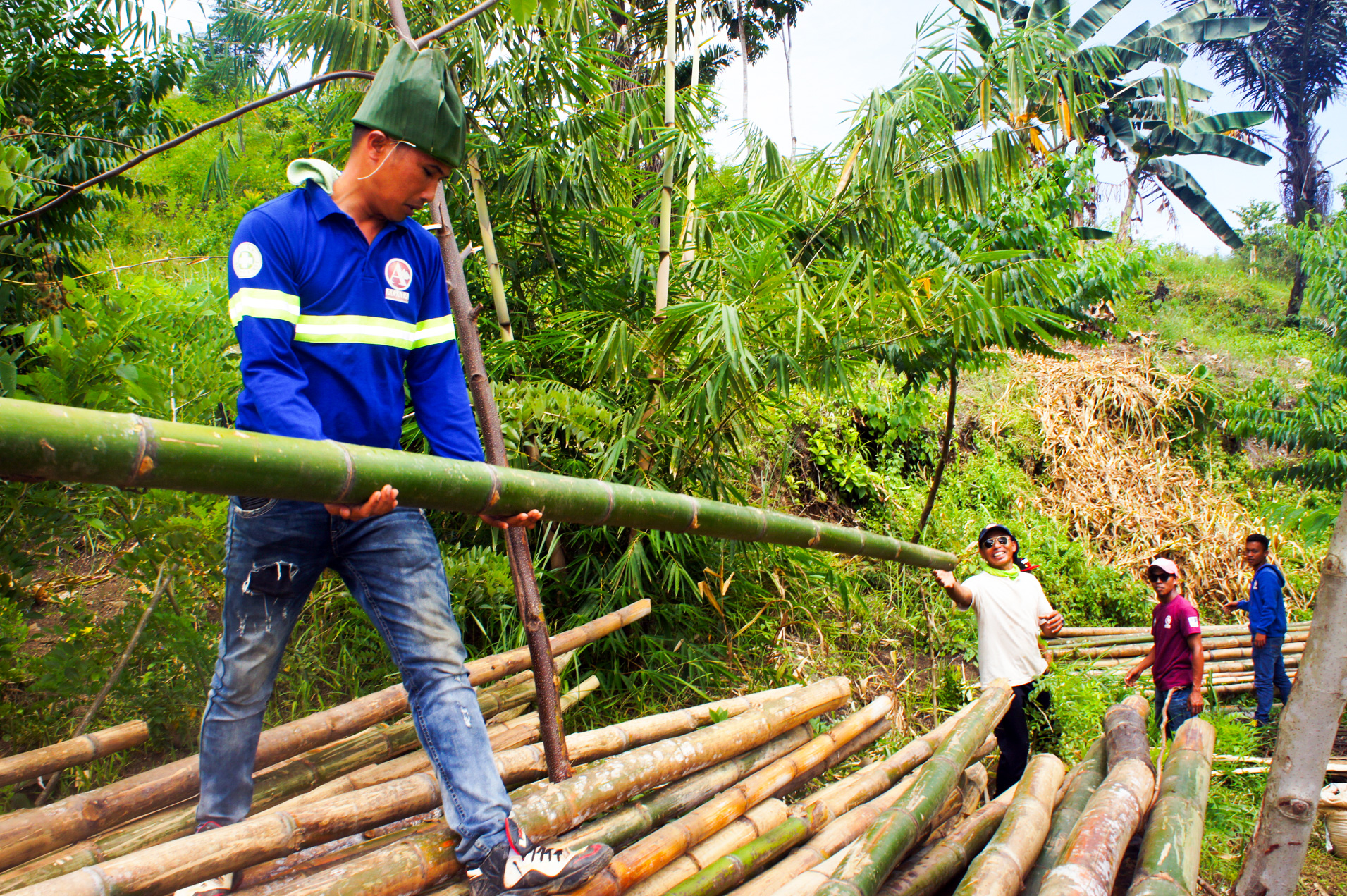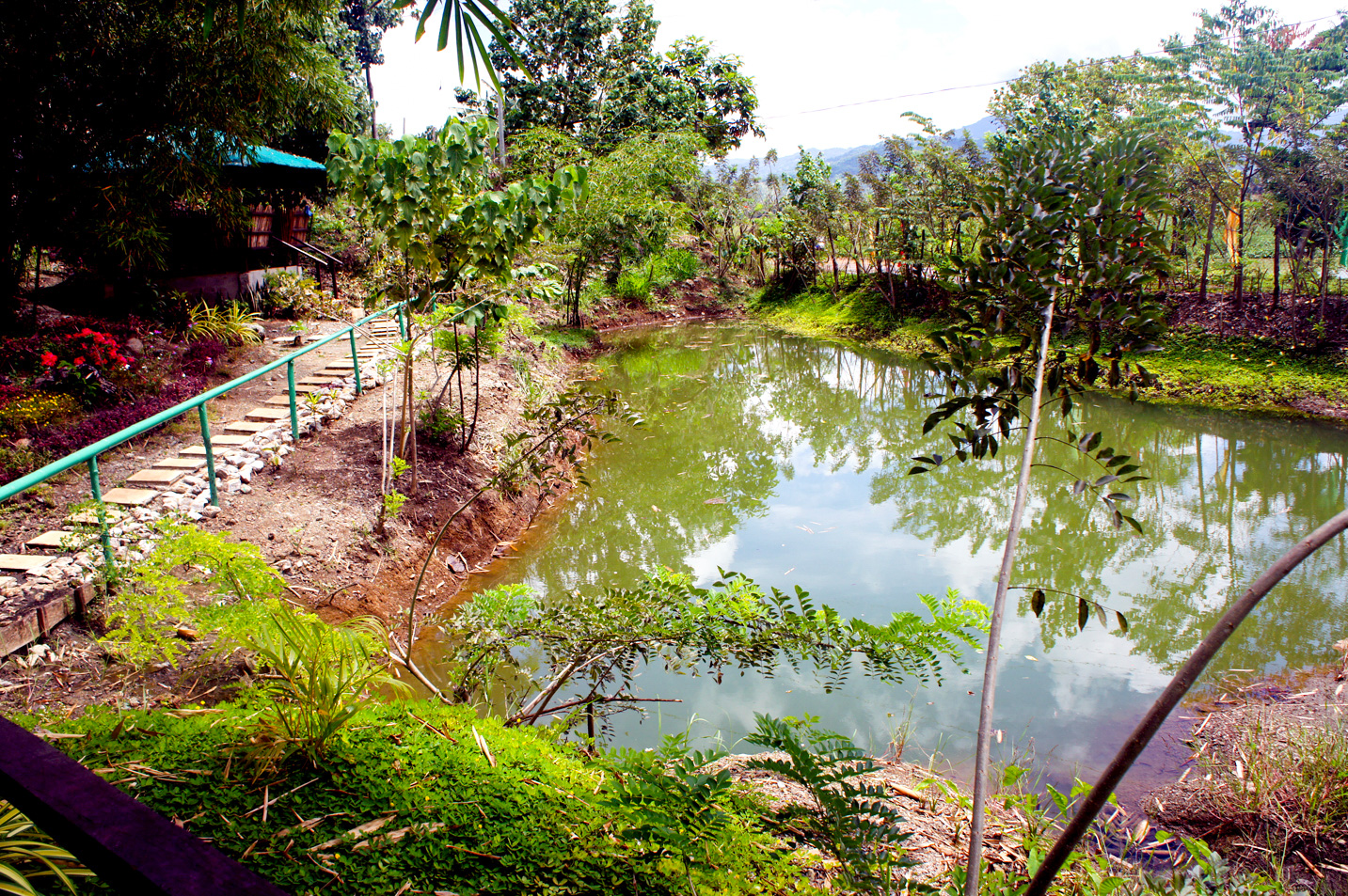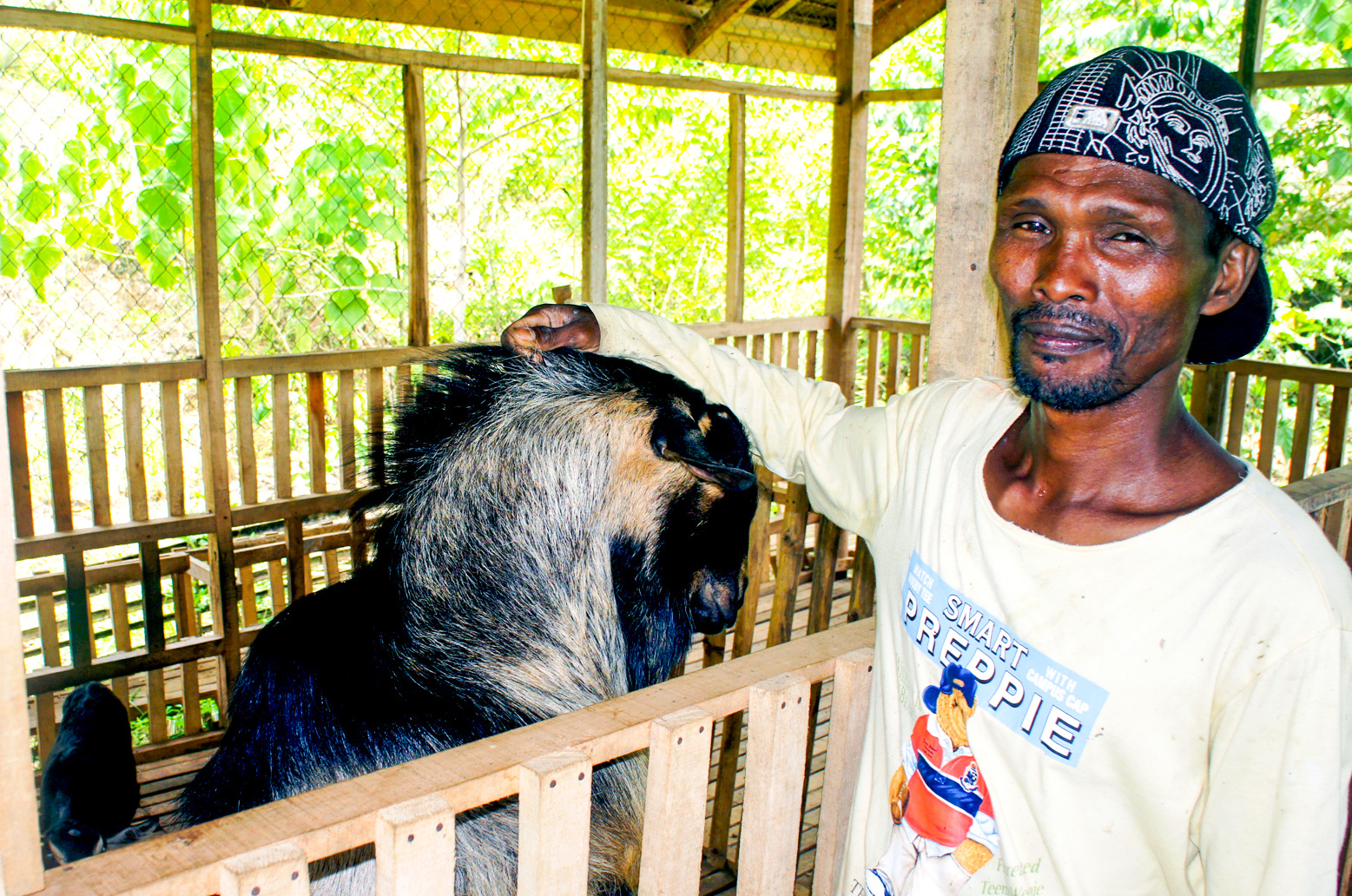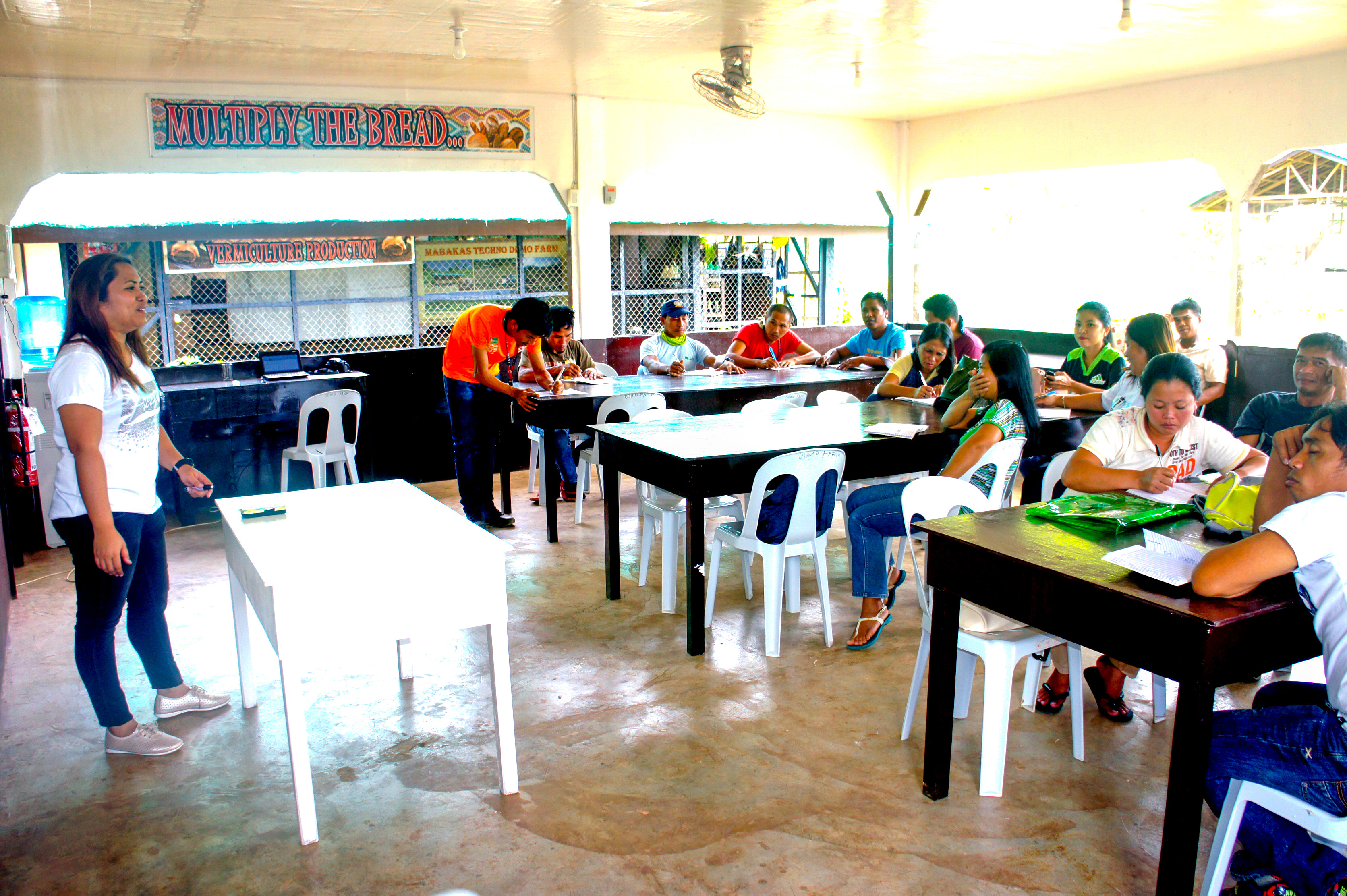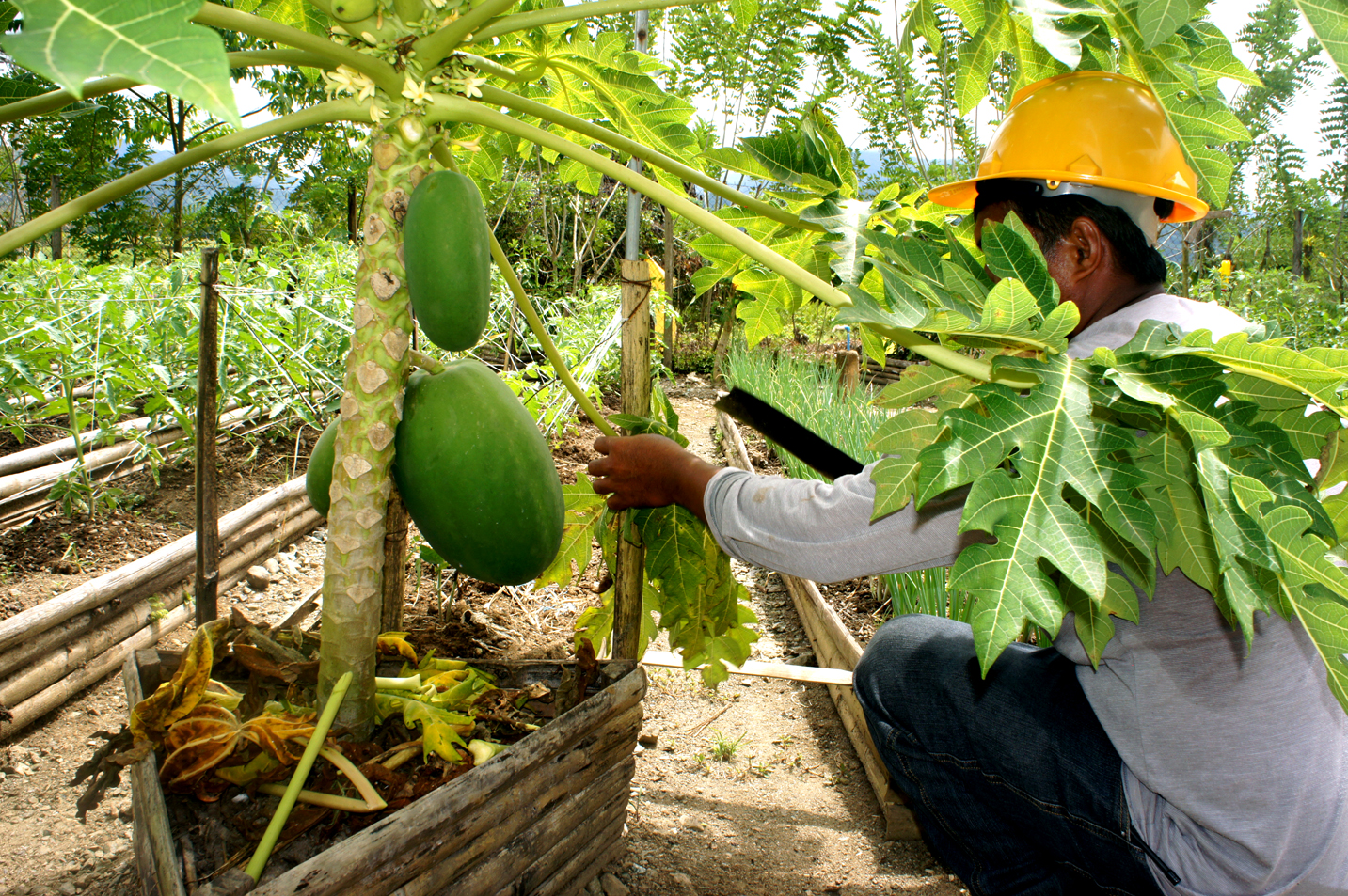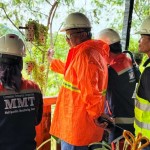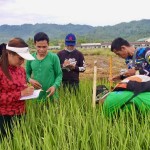-
Women in action. While most men in the community are employed in Agata’s mining operations, the women are trained and are found to be effective in organic farming.
-
School of Sustainability. The Mabakas Farm School is a collaborative effort between Agata, the LGU of Jabonga and communities within the company’s MPSA. It is located at Sitio Coro, Barangay Colorado of this municipality and showcases organic farming methods, freshwater aquaculture and goat-raising facilities.
-
Hand in hand. Mining employees and community members help in establishing and continuing improvements at the Mabakas Farm School.
-
The Mabakas Farm School showcases a fish pond where farmers can learn how to propagate freshwater fish – in addition to being a potential tourist attraction in the future.
-
Anglo-Nubian goats are being raised by the community in order to meet the market demand for goat meat. The facility aims to equip goat raisers with skills to take care and ensure the marketability of their livestock.
-
Agata Community Organizer Sheila Mae Arcala teaches community trainers how to maintain their farms and establish a monitoring system to ensure a quality harvest.
-
Fruit trees that have commercial viability are now ready for harvest – most of which are going to be sold to Agata at the onset.
Farm school enhances traditional farming methods while preserving agricultural heritage
Jabonga, Agusan del Norte / May 2018 – The agricultural potential of Agata communities now reaches the next level in achieving a sustainable future. Since the start of its operations, Agata Mining Ventures Inc. (AMVI) has been a strong partner of the community, particularly in creating ways for the people to harness their resources and achieve financial independence. Established this year, the Mabakas Farm School serves as another catalyst in imbibing resourcefulness through the utilization of waste soil and recyclable materials such as tires, plastic containers, bottles and even food waste.
The frequent forest fires in previous years and flooding of the lake occurs every now and then in Agata’s communities, hindering plants and other vegetation to grow. Nanay Saylang, one of the indigenous people’s leaders, has been an advocate of community development and is presently one of the students in the Farm School.
“We (Agata) communities have struggled in acquiring and producing viable crops to augment our livelihood. The soil here is highly-mineralized and prevents plants to thrive or become productive,” laments the elderly Mamanwa leader.
“Through this farm school, we can be trained on how to establish an agricultural livelihood for our future,” said Saylang.
Mamanwa agricultural heritage
The core objective of the Mabakas Farm School is to enhance the Mamanwas’ traditional farming methods and preserving their agricultural heritage while ensuring fruitful harvests. Teacher trainings were conducted by the Department of Agriculture among assigned Agata staff and selected Agro-technicians from the community. Previously, they also explored other organic farms and plantations in Davao City to learn best practices and replicate these at the community level.
“Through the farm school, Agata communities in Jabonga can learn the right agricultural practices and technologies that would pave the way for new and additional opportunities, especially for those who are currently not working – even our out-of-school youth,” according to Community Organizer Sheila Mae Arcala who is in-charge of sharing technologies and learning materials with beneficiary communities in all three municipalities within Agata’s area: Tubay, Santiago and Jabonga.
The weekly trainings are conducted in different batches. The IP Agro-technicians have their training once a week from 8:00 AM to 5:00 PM. Participants are taught to develop organic fertilizers, organic pest repellants, farm maintenance and monitoring as well as other means of ensuring a good harvest.
“Mining communities are now at the stage of empowering themselves after stabilizing their once unproductive lands into a sustainable economic resource. In line with the DENR-MGB mandate, all SDMP programs are now focused on sustainable economic interventions as such this in order to train community Agro-technicians and establishing productive farms,” said Community Relations Superintendent Jojo Banes.
“Mabakas” is a Mamanwa word that stands for “hardworking.” The farm school is a one-hectare facility funded by Agata’s SDMP and includes a lecturing facility, “vermicompost” beds, goat pens, a fresh water fish pond and plots for vegetables, spices and rootcrops.
Multi-partite cooperation
The launch of the Mabakas Farm School is a major accomplishment for both the CARAGA Region and the province. It is likewise supported by the Office of Senator Cynthia Villar, which allocates Php500 million annually for agriculture scholarships – and which can be also used for the enrolment of students in the farm schools. In the future, the farm school will likely seek an accreditation from the Department of Tourism for it to become a Farm Tourism Site.
Agata is a joint nickel laterite mining project of TVI Resource Development Philippines Inc. (TVIRD) and MRL Philippines. Taking off from its former Techno Demo Farm, which previously served as Jabonga’s municipal dump site, the company established the Farm School in Sitio Coro, Barangay Colorado of this municipality.
The project is a collaborative effort between the Agata Community Relations and Environmental Management Departments, the local government of Jabonga under Mayor Jasmin F. Monton, barangay officials and the indigenous Mamanwa tribal organizations themselves.
*******

